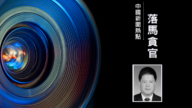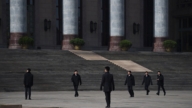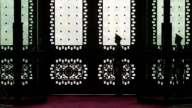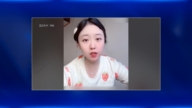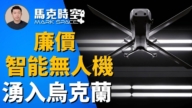【新唐人2013年01月07日訊】《南方週末》現職編輯、記者親自站上臺面發表聲明,呼籲廣東當局成立調查組,徹底調查《新年特刊》違反出版流程的事故及原因。而,2號發生的新年特刊遭竄改《新年獻詞》事件,只是一個導火線,據不完全統計,2012年,南方週末編輯部被改、撤稿件共1034篇。一年共52期的《南方週末》,平均每期有將近20篇稿件被撤或刪改。
這封公開信5號透過南方報系下屬媒體的官方微博發出,隨後立即被南方報系編輯、記者及大陸網民瘋狂轉發。
公開信呼籲廣東當局成立調查組調查此事,並發布調查報告;解禁和恢復所有因討論此事而被禁言的微博帳號。據報導,5號微博上,大批南方報業員工及關注者的帳號陸續解封。
《南方都市報》5號也發表《讓無聲者有聲,讓有聲者多元》社論,呼籲中共當局放鬆輿論環境。據了解,一年共52期的《南方周末》,平均每期有將近20篇稿件被撤或刪改。
公開信之後,網上聲援的音浪一波接一波。各家意見領袖參與討論,呼喚「新聞自由」,但也有人認為,事件核心並不是新聞自由的問題,而是新任中共廣東省委宣傳部長庹震對媒體的管制方式問題。
大陸作家 鐵流:「庹震這個人,他過去就是一般部門主任,他90年代是經濟日報評論部的主任。這個人應該說,他不是一個媒體人,就是一個牽頭﹑傍大腿的這麼一個無恥的小人 。」
針對「2013 年新年獻詞事件」,前《南方周末》編輯和記者的公開信表示,事情極為嚴重,不得不表明共同立場。
公開信寫道,南方周末2013 年新年特刊主題為「 篳路藍縷、不懈不止:家國夢」。1 月2 號,在南方周末已經簽版定樣、編輯記者休假、完全不知情的狀態下,廣東省委常委、宣傳部長庹震,指示對新年特刊做出多處修改、撤換,並導致多處錯誤、事故。
鐵流:「而且他(庹震)又用《南方》的名義發出來,你說這對《南方》簡直…怎麼交代﹗那怎麼不感到憤怒﹗他的目地就是要跟劉雲山﹑李長春勾結起來,反對十八大新的領導人習﹑李,因為現在習近平都提了,任何部門﹑任何團體,都必須置於憲法之下,任何違反憲法﹑超越憲法,都要受到追究。」
大陸學者辛子陵表示,他周圍的學生跟他都是一樣的觀點,認為,這次事件反映﹕人民當家作主的民主意識進一步提高,是個好事情﹗
採訪/常春 編輯/周平 後製/周天
Southern Weekly: 1,034 Articles Censored in 2012
Editors and journalist currently working at the Southern
Weekly recently appealed to the Chinese Communist
Party (CCP) authorities in Guangdong Province.
These media professionals requested an
official investigation into the cause for the
forced alteration of 2013 New Year
message, which is deemed as merely a fuse.
Reportedly, the CCP regime censorship
altered and deleted at least 1,034 articles.
This is equivalent to nearly 20 articles in
each issue of the Weekly published in 2012.
The open letter was released on January 5
in the newspaper’sofficial microblog.
It was swiftly and widely circulated on the internet.
It appealed to the CCP Guangdong authorities;
1, to set up a research team to investigate
the issue and release the findings.
2, to restore all microblog accounts that have been
blocked for participating in discussion on the issue.
Media reported that on January 5, many Southern Weekend
staff and followers had microblog accounts restored.
On the same day, the Southern Metropolis Daily published
an editorial, urging the CCP regime to de-regulate the press.
The Southern Weekly publishes 52 issues per year.
On average, nearly 20 articles per issue were reportedly
deleted or revised by CCP official censors.
Support for the open letter has surged on the
internet, calling for “freedom of the press”.
Some online critics say that the core of the
issue is not about freedom of the press.
Rather, it is a question of how Guangdong CCP
propaganda chief Tuo Zhen exerts control on media.
Tie Liu, Writer in China: “Tuo Zhen
was not an unusual figure.
In the 1990s, he was in charge of the
comment section at the Economic Daily.
He cannot be called a media professional,
but a shameless bureaucratic villain.”
In the letter, former Southern Weekend
editors and journalists claimed that they
had to express their common position to
protest the 2013 New Year message incident.
The open letter said that the original theme of the 2013
New Year message was the pursuit of China’sDream.
On January 2, without the knowledge of newspaper editors,
Tuo Zhen, Guangdong CCP propaganda chief, deleted
and altered content on the final signed-off print proofs.
To add to this, Tuo made several obvious errors.
Tie Liu: “Later, Tuo Zhen’saltered piece was still
published under the name of the Southern Weekly.
How could it not drive the newspaper’sstaff mad?
He simply did that in collusion with
Liu Yunshan and Li Changchun.
This was to fight against Xi Jinping and Li Keqiang.
Xi has just openly said that any department
or group shall be subject to the Constitution.
Any breach or overriding of the Constitution shall
be criminally investigated and held accountable.”
Xin Ziling: “The central authorities will deal with
it formally, and won’tleave it unchecked, I think.
It’suseless that Liu Yunshan backs up
Tuo Zhen, as Xi Jinping is the new boss.
Tuo Zhen just sang a different tune, which
is directly against the central leadership.”
Xin Ziling adds that the students
around him feel the same way.
They all view the Southern Weekly incident as a good thing,
as it shows Chinese democratic consciousness is improving.




